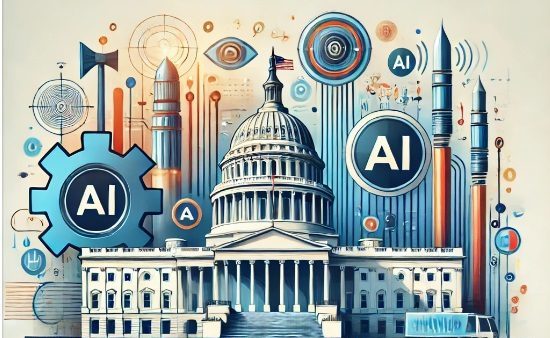Unlocking the Power of AI: Exploring Types and Game-Changing Applications in Vocational Rehabilitation
Artificial Intelligence (AI) has become an integral part of many industries, revolutionizing how we approach problem-solving and process automation. For Vocational Rehabilitation (VR) agencies, AI holds the potential to streamline case management, enhance client services, and improve overall outcomes. But before diving into how AI can specifically benefit VR, it’s essential to understand the different types of AI and their unique capabilities.
In this post, we’ll explore the various categories of AI, from basic automation to advanced learning systems, and how each could play a role in transforming vocational rehabilitation.
What is AI?
At its core, AI refers to the simulation of human intelligence by machines. AI systems are designed to perform tasks that typically require human cognition, such as understanding language, recognizing patterns, making decisions, and even solving complex problems. While AI can seem like one broad concept, there are several distinct types, each with varying levels of complexity.
1. Reactive AI
- Reactive AI is the most basic type of artificial intelligence. It is designed to perform specific tasks based on pre-programmed rules and does not have the capability to learn from past experiences. Reactive AI systems are excellent at performing repetitive, rule-based tasks, making them ideal for automating simple administrative functions.
- Application for VR Agency: A reactive AI system could automate appointment scheduling or reminders for clients, freeing up counselors to focus on more critical, client-focused activities.
- Application for Job Seeker: A reactive AI assistant could help job seekers who are blind by tracking application statuses and sending automated voice reminders for upcoming interviews or required follow-up actions, keeping them organized and on track in their job search.
2. Limited Memory AI
- Limited Memory AI can make decisions by analyzing past data and learning from previous experiences, though its “memory” is relatively short-lived. Most current AI applications, including machine learning systems, fall under this category.
- Application for VR Agency: A limited memory AI could help counselors predict the best services or programs for clients based on historical data. This type of AI could analyze trends in client progress and outcomes, offering recommendations for future services tailored to each individual’s needs.
- Application for Job Seeker: A Limited Memory AI application could serve as a personalized job coach, analyzing a job seeker’s past applications and interview feedback to recommend skill development areas or suggest roles that align with their strengths, helping them refine their job search strategy.
3. Theory of Mind AI
- Theory of Mind AI is still in development, but it represents a more advanced type of AI that can understand and simulate human emotions, beliefs, and intentions. This kind of AI could interact with people in more nuanced, emotionally intelligent ways, recognizing individual differences and responding appropriately.
- Application for VR Agency: In the future, this type of AI could help VR counselors better understand the emotional and mental states of clients, assisting in providing more empathetic and personalized support during their rehabilitation journey.
- Application for Job Seeker: A Theory of Mind AI application could assist job seekers with disabilities by recognizing their emotional state during job search activities, providing encouragement, adapting advice based on their confidence level, and offering empathy-driven support to keep them motivated throughout the process.
Specialized Subsets of AI Types Relevant to VR
AI is often associated with Machine Learning (ML), Natural Language Processing (NLP), and Generative AI, which are specialized subsets that each bring unique capabilities to typical AI functions. Together, these subsets broaden the scope of what AI can achieve, providing powerful tools to enhance services, streamline processes, and deliver personalized experiences, especially in fields like vocational rehabilitation.
1. Machine Learning (ML)
Machine Learning (ML) is a subset of AI that allows systems to automatically learn and improve from experience without being explicitly programmed. ML algorithms analyze vast amounts of data, identify patterns, and make informed decisions based on that data.
Application for VR Agency: ML could be used to analyze large datasets of client information, helping to identify trends and improve service delivery. For instance, an ML system could determine which clients are most likely to succeed in a particular job placement, allowing counselors to tailor their strategies.
Application for Job Seeker: Machine Learning could help job seekers with disabilities analyze their skills, job history, and preferences to recommend tailored job openings that align with their abilities and needs, increasing their chances of finding a suitable role.
2. Natural Language Processing (NLP)
Natural Language Processing (NLP) is a field of AI that focuses on enabling machines to understand and respond to human language. NLP powers many of the chatbots and virtual assistants used today.
Application for VR Agency: NLP can enable more efficient communication between clients and agencies. A virtual assistant could help clients navigate services, answer common questions, or assist with paperwork, reducing the workload on agency staff.
Application for Job Seeker: Natural Language Processing could assist job seekers with disabilities by enabling conversational virtual assistants that help navigate job applications, answer questions, and provide step-by-step guidance, making the process more accessible and user-friendly.
3. Generative AI
Generative AI refers to AI systems that can create new content, whether that’s text, images, or even music. These systems work by analyzing patterns and using that data to produce something new.
Application for VR Agency: Generative AI could assist with report generation, creating detailed summaries based on client data and progress, saving counselors hours of manual work while ensuring all relevant information is captured.
Application for Job Seeker: Generative AI could support job seekers with disabilities by creating tailored resume templates and cover letters based on their skills and experience, saving time and helping them present their strengths effectively.
Conclusion: The Role of AI in VR
Understanding the different types of AI is the first step in recognizing how this technology can support VR agencies and the job seekers they serve. From automating simple tasks to providing personalized client services, AI has the potential to transform how agencies operate and deliver support to their clients.
As AI continues to evolve, VR professionals should stay informed about these technologies and their applications, ensuring that their agencies are well-positioned to leverage AI’s potential to improve both agency performance and client outcomes.
Next week, we’ll dive into specifically How AI Enhances Case Management in VR Agencies and explore practical applications for improving case management workflows through AI-powered tools.
Want to learn more? Join us for a 30-minute webinar, Unlocking the Power of AI: Discover the Future of Vocational Rehabilitation Agencies.
Join us for a 30-minute webinar on Friday, January 17th, 2025 at 1:00 PM ET! Libera’s AI experts will explore ways to streamline workflows, enhance client outcomes, and future-proof your agency. Register below.





